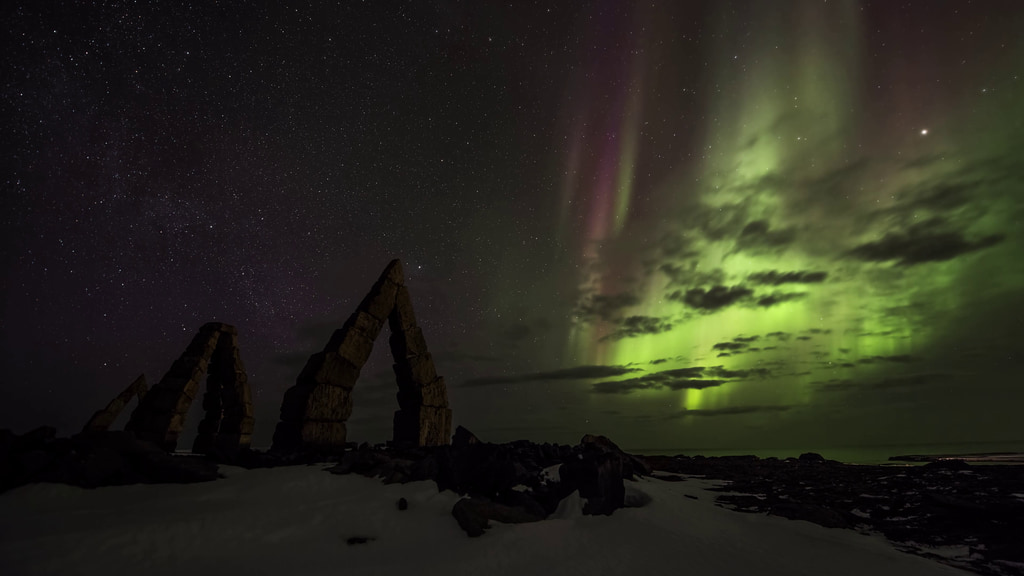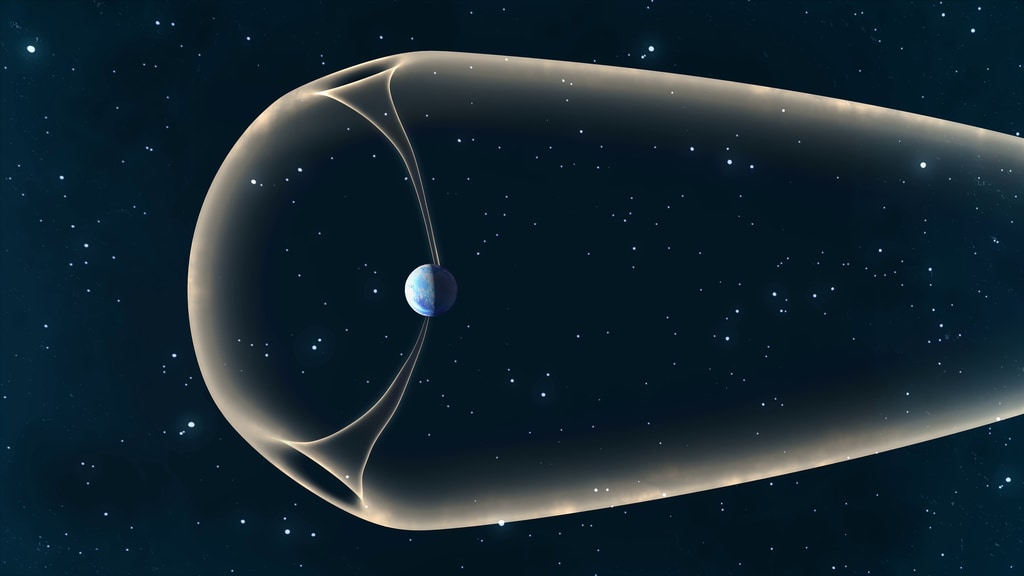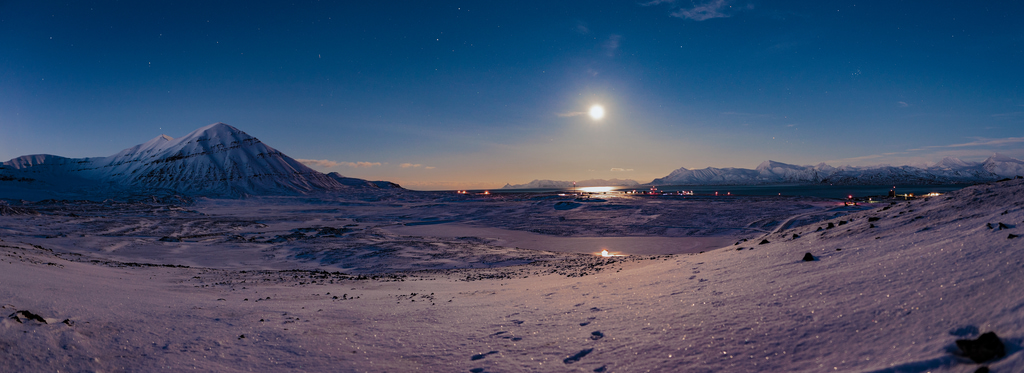VISIONS-2 Aurora Imagery

Aurora in Ny-Ålesund, Svalbard on December 6, 2018.
A GIF optimized for Twitter.

Aurora in Ny-Ålesund, Svalbard on December 6, 2018.
Credit: NASA/Joy Ng

Aurora in Ny-Ålesund, Svalbard on December 4, 2018.
Credit: NASA/Joy Ng

Aurora in Ny-Ålesund, Svalbard on December 7, 2018. The green laser in the distance is the Koldewey Aerosol Raman Lidar that measures tiny particles in Earth's atmosphere.
Credit: NASA/Joy Ng

The cusp aurora in Ny-Ålesund, Svalbard. It's a type of aurora that appears only during the day. It looks similar to aurora at night but when these iridescent lights appear, a hundred tons of atmosphere escapes into space. Scientists say this is a natural process that will occur over billions of years.
Credit: NASA/Chris Pirner

The cusp aurora in Ny-Ålesund, Svalbard. It's a type of aurora that appears only during the day. It looks similar to aurora at night but when these iridescent lights appear, a hundred tons of atmosphere escapes into space. Scientists say this is a natural process that will occur over billions of years.
Credit: NASA/Chris Pirner

Aurora in Ny-Ålesund, Svalbard.
Credit: NASA/Chris Pirner

Aurora in Ny-Ålesund, Svalbard.
Credit: NASA/Chris Pirner

Aurora in Ny-Ålesund, Svalbard.
Credit: NASA/Chris Pirner

Aurora in Ny-Ålesund, Svalbard.
Credit: NASA/Chris Pirner

Aurora in Ny-Ålesund, Svalbard.
Credit: NASA/Chris Pirner

Aurora in Ny-Ålesund, Svalbard.
Credit: Bin Li

Aurora in Ny-Ålesund, Svalbard.
Credit: Bin Li
For More Information
Credits
Please give credit for this item to:
NASA's Goddard Space Flight Center
-
Photographers
- Joy Ng (USRA)
- Chris Pirner (ADNET Systems, Inc.)
- Bin Li (Polar Research Institute of China)
Release date
This page was originally published on Tuesday, May 7, 2019.
This page was last updated on Wednesday, May 3, 2023 at 1:45 PM EDT.




![Complete transcript available.Music credit: “Intrigues and Plots” and “Repetitive Motion” by Laurent Dury [SACEM] from Universal Production Music Watch this video on the NASA Goddard YouTube channel.](/vis/a010000/a013600/a013687/13687_AuroralBeads_YouTube.00320_print.jpg)
![Watch this video on the NASA Goddard YouTube channel.Complete transcript available.Music credits: “Journey to the Past”, “New Philosopher”, “Curiosity Cabinet”, “Buzzing Culture”, “Dusk Theories”, “At the Edge of the End” by Laurent Dury [SACEM]; “Strong Voices” by Tom Caffey [ASCAP]; “The Fortune Teller” by Phil Stevens [PRS]; “Shinobi’s Fight” by Benoit Malis [SACEM]; “Spring into Life” by Oliver Worth [PRS]](/vis/a010000/a013400/a013430/VISIONS2_Thumbnail.jpg)